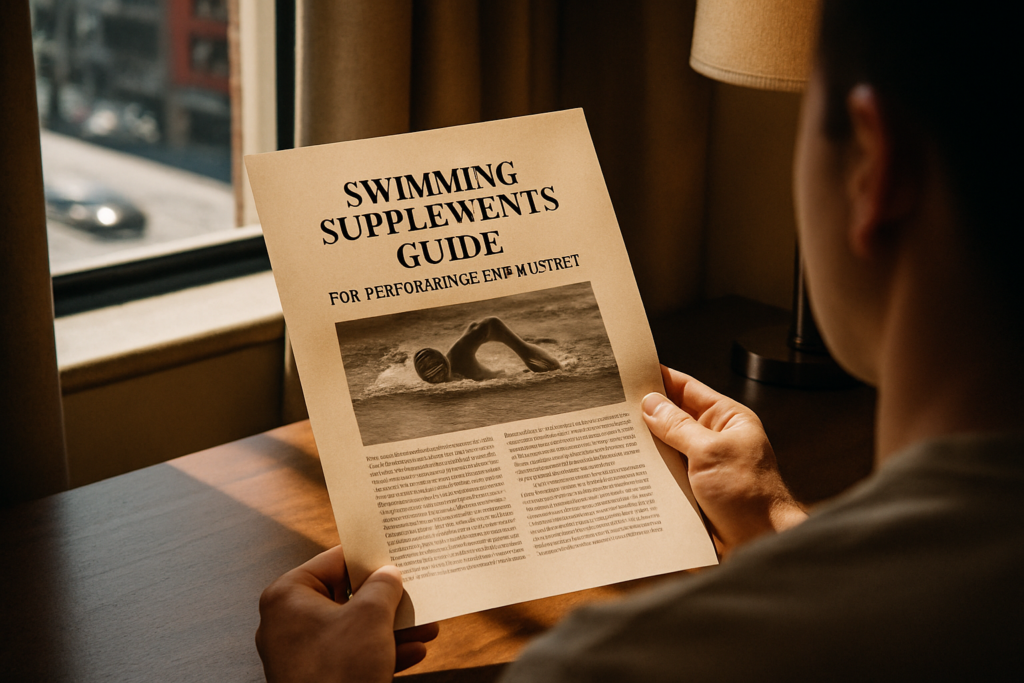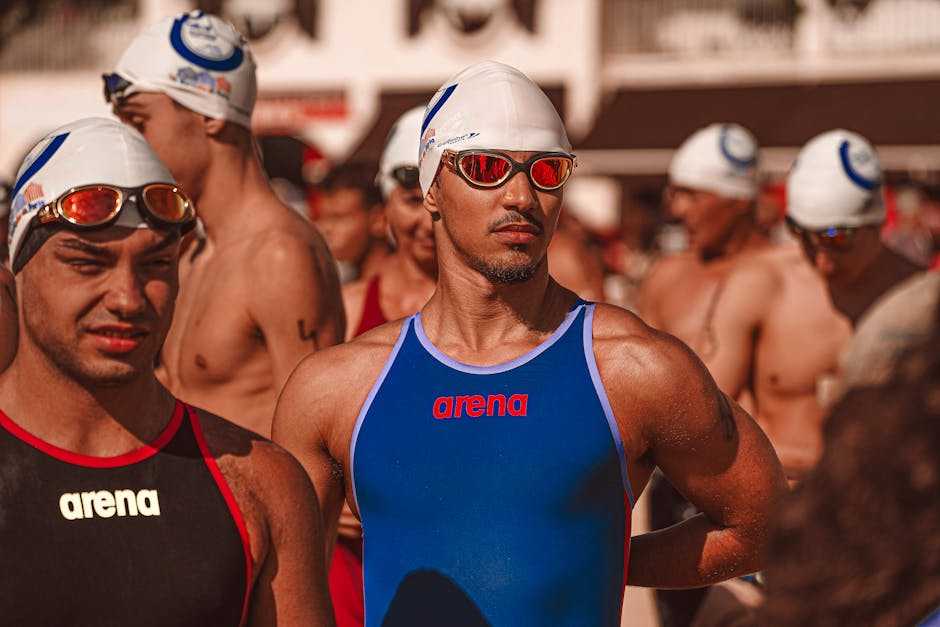As a seasoned swimmer, I’ve often pondered the role of nutritional supplements in enhancing performance in the water. The world of supplements can be overwhelming, with a myriad of options promising various benefits. But do swimmers truly need them to stay at the top of their game? In this article, we delve into the science behind nutritional supplements for swimmers, separating fact from fiction.
Fueling our bodies effectively is crucial for optimal performance, especially in a demanding sport like swimming. From protein powders to multivitamins, the market is flooded with products claiming to boost endurance and speed up recovery. But are these supplements a necessity or just a marketing ploy? Join me as we explore the potential benefits and drawbacks of incorporating nutritional supplements into a swimmer’s routine.
Assessing the Role of Nutritional Supplements in Swimming
When it comes to swimming, having the right nutrition is crucial for optimal performance in the pool. Proper nutrition not only fuels the body but also aids in recovery, endurance, and overall health. As a swimmer, I understand the importance of fueling my body with the right nutrients to ensure peak performance.
The Importance of Nutrition in Swimming Performance
In the world of competitive swimming, every fraction of a second counts. Nutrition plays a vital role in helping swimmers achieve their best results. Consuming the right balance of carbohydrates, proteins, fats, vitamins, and minerals can enhance energy levels, support muscle growth and repair, and boost recovery after intense training sessions. As a swimmer, I focus on maintaining a nutrient-dense diet to sustain my energy levels and aid in muscle recovery, allowing me to perform at my best during training and competitions.
Understanding Nutritional Supplements
Nutritional supplements are designed to complement a swimmer’s diet by providing concentrated doses of specific nutrients. While it’s essential to prioritize whole foods for nutrition, supplements can offer added support, especially in cases where dietary requirements may not be fully met. Common supplements for swimmers include protein powders for muscle recovery, omega-3 fatty acids for joint health, and electrolyte replacements for hydration. As a swimmer, I see nutritional supplements as tools to optimize my nutrition regimen and support my performance goals, but they should never replace a balanced diet based on whole foods.
Common Supplements Among Swimmers
As a swimmer focused on performance, I understand the importance of incorporating specific nutritional supplements into my routine to support my training and competition goals. Let’s explore some common supplements that swimmers often incorporate to optimize their performance and recovery.
Vitamins and Minerals
Ensuring adequate intake of essential vitamins and minerals is crucial for swimmers to maintain overall health and support optimal performance. Key nutrients such as vitamin D, iron, calcium, and magnesium play vital roles in muscle function, energy metabolism, and recovery. As a swimmer, I prioritize a balanced diet rich in whole foods to meet my nutritional needs. However, I also supplement my diet with multivitamins to fill any potential gaps and support my body’s demands during intense training phases.
Protein Supplements and Amino Acids
Protein is essential for muscle repair, growth, and recovery, making it a fundamental component of a swimmer’s diet. While whole food sources like chicken, fish, and eggs are primary protein sources, many swimmers choose to supplement their protein intake with protein powders or shakes. These supplements offer a convenient and quick-digesting source of protein, especially post-training when immediate muscle recovery is crucial. Branched-chain amino acids (BCAAs) are also popular among swimmers to support muscle protein synthesis and reduce muscle fatigue during prolonged training sessions.
Energy Gels and Electrolyte Drinks
During long swim sessions or competitions, maintaining energy levels and proper hydration is key to sustaining performance. Energy gels packed with carbohydrates provide a quick source of energy to fuel muscles during intense workouts or races. Electrolyte drinks help replenish essential minerals like sodium, potassium, and magnesium lost through sweat, promoting proper muscle function and preventing cramping. As a swimmer, I rely on these supplements strategically to optimize my performance and ensure I stay hydrated and energized throughout my training sessions and races.
Pros and Cons of Nutritional Supplements for Swimmers

As a swimmer, I’ve explored the potential advantages and drawbacks of incorporating nutritional supplements into my training regimen. Let’s delve into the specifics of these supplements to understand their impact on swimmers’ performance.
Potential Benefits of Supplements for Performance Enhancement
- Enhanced Recovery: Supplements like protein powders play a crucial role in muscle repair and growth, aiding swimmers in recovering faster post-workout sessions.
- Improved Energy Levels: Energy gels and electrolyte drinks provide a convenient way to maintain energy levels during intense training or competitions, ensuring sustained performance.
- Targeted Nutrition: Vitamins and minerals supplements can address specific nutritional deficiencies, supporting muscle function and overall recovery.
- Convenience: Supplements offer a convenient way to ensure that swimmers meet their daily nutrient requirements, especially when whole food options may be limited.
- Regulatory Concerns: The supplement industry is not closely regulated, raising concerns about the safety and quality of these products. Swimmers should be cautious when selecting supplements to avoid harmful substances.
- Overconsumption: Excessive intake of certain supplements can lead to adverse effects on health. It’s essential for swimmers to follow recommended dosages and consult healthcare professionals when in doubt.
- Dependency: Relying too heavily on supplements may divert attention from a balanced diet, potentially leading to nutrient imbalances and other health issues in the long run.
- Individual Variability: Each swimmer’s nutritional needs differ, making it crucial to personalize supplement intake based on individual requirements and goals.
By carefully weighing these pros and cons, swimmers can make informed decisions regarding the inclusion of nutritional supplements in their dietary plans to optimize performance while ensuring their overall well-being.
Guidelines for Swimmers Using Supplements
When it comes to incorporating supplements into your diet as a swimmer, certain guidelines can help you make informed choices to optimize your performance and overall health.
Choosing the Right Supplements
As a swimmer, it’s essential to choose supplements that align with your specific needs and goals. Opt for supplements that are backed by research and are suitable for athletes, ensuring they are safe for consumption. Some common supplements that swimmers may benefit from include:
- Protein powders: These can aid in muscle recovery and growth, especially after intense training sessions.
- Omega-3 fatty acids: Known for their anti-inflammatory properties, they can help reduce muscle soreness and support heart health.
- Electrolyte replacements: Important for maintaining proper hydration and muscle function, especially during long swim sessions.
Ensure you select supplements that are free from banned substances and have undergone testing for quality and safety.
Recommendations for Safe Supplement Use
To safely use supplements as a swimmer, consider the following recommendations:
- Consult with a healthcare provider or a sports nutritionist before adding any new supplement to your regimen.
- Follow the recommended dosage instructions provided on the supplement packaging.
- Keep track of your supplement intake and monitor any changes in your performance or well-being.
- Be aware of potential side effects and discontinue use if you experience any adverse reactions.
- Remember that supplements are meant to complement a well-balanced diet, not replace it. Focus on getting essential nutrients from whole foods whenever possible.
By following these guidelines and recommendations, swimmers can make informed decisions about using supplements to support their training and enhance their swimming performance.


 is a seasoned fitness expert with a special focus on swimming and holistic health strategies. With years of experience as a competitive swimmer and fitness coach, Patricia offers readers a wealth of knowledge on optimizing performance and maintaining a balanced lifestyle. Her writing on Swim Fast Stay Fit reflects her commitment to empowering others with practical advice and motivational insights. Patricia’s approach integrates advanced training techniques with accessible wellness tips, aiming to help individuals achieve their personal fitness goals and enhance their overall quality of life. Through her engaging articles, Patricia inspires readers to embrace a comprehensive approach to health, combining effective exercise routines with mindful nutrition and self-care practices.
is a seasoned fitness expert with a special focus on swimming and holistic health strategies. With years of experience as a competitive swimmer and fitness coach, Patricia offers readers a wealth of knowledge on optimizing performance and maintaining a balanced lifestyle. Her writing on Swim Fast Stay Fit reflects her commitment to empowering others with practical advice and motivational insights. Patricia’s approach integrates advanced training techniques with accessible wellness tips, aiming to help individuals achieve their personal fitness goals and enhance their overall quality of life. Through her engaging articles, Patricia inspires readers to embrace a comprehensive approach to health, combining effective exercise routines with mindful nutrition and self-care practices.
